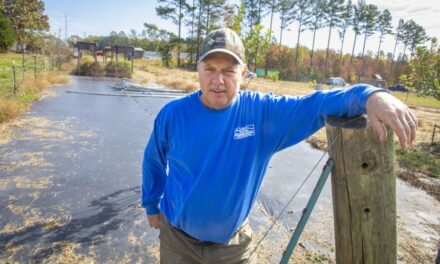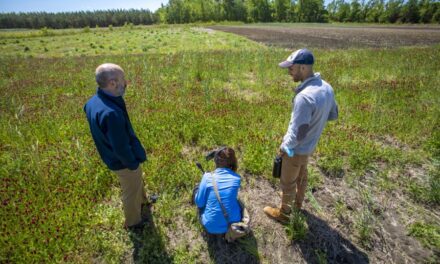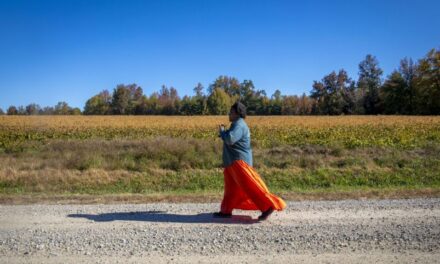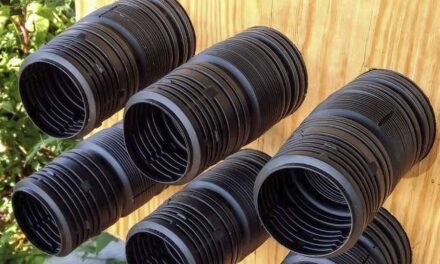Marketing Rowan County peaches in the digital age
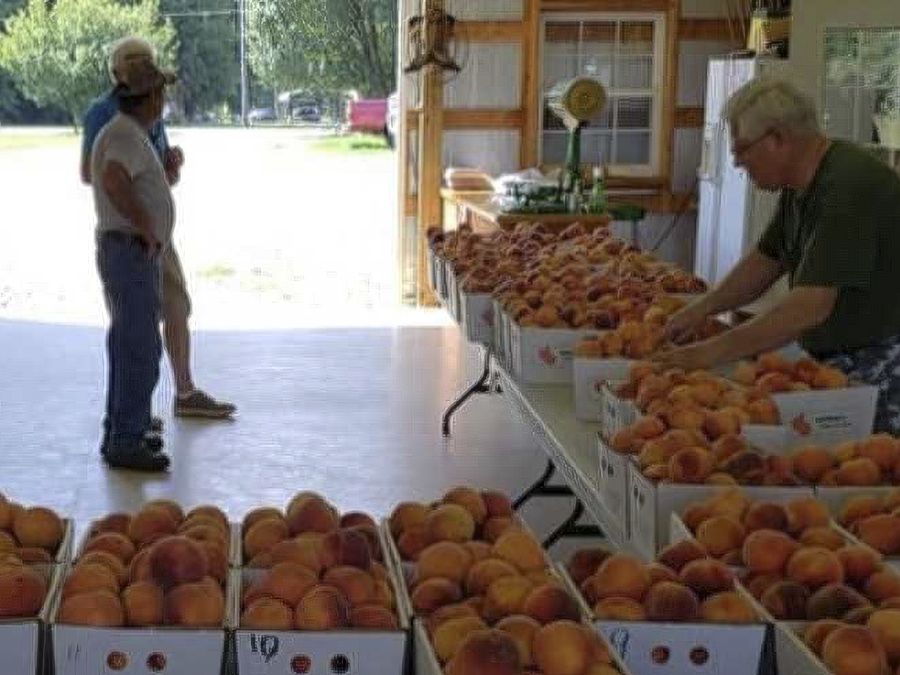
The peaches are ripe and ready to eat at Huffman’s Peaches and Produce, the retail stand on the farm owned by Kevin Huffman near Salisbury. Late freezes and a move to a new orchard not visible from the main road led many customers to think Huffman’s Peaches was out of business last year. With some help from Extension at A&T, Huffman launched a digital marketing campaign and since then, business has been booming.
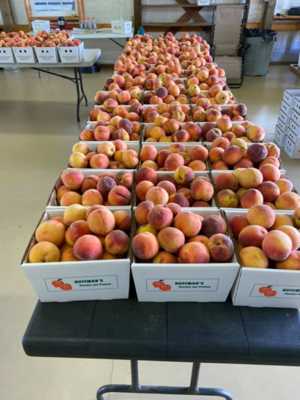
By the end of the 2019 peach season, customers were lining up down the road to Kevin Huffman’s peach orchard to get a taste of what he calls “some of the sweetest peaches you’ll ever taste.” New marketing efforts helped get the word out about the orchard, which translated into $6,000 in additional revenue.
SALISBURY – At the start of the peach season in 2019, Kevin Huffman was giving away peaches because sales were so slow. By the end of the season, customer’s cars were lined up along the road to his orchard; some were coming from as far away as South Carolina, Virginia and Georgia.
What changed? With help from Cooperative Extension at N.C. A&T and Michael Fine, the agriculture and natural resources agent in Rowan County, Huffman got the word out about his crop and was able to crush rumors that Huffman’s Peaches, a fixture in the county for more than 20 years, was out of business.
“Last year, we started the season giving away peaches to a children’s home and to Meals on Wheels, and we were still having to discard some,” said Huffman, who also raises Red Angus cattle and grows hay on his farm. “By July, we were open at 9 a.m. every day and sold out by 2 p.m.”
By simply setting up a website and launching a social media campaign, and with a little extra promotion from April Everett, the publicist for Rowan County, the orchard was able to sell 95% of its crop in 2019. Sixty percent of sales came from retail sales on the farm, and foot traffic increased by about 40%. The increase in sales translated into about $6,000 in additional revenue.
“I’m still old school – I used a flip phone until a few weeks ago – but technology has really helped,” said Huffman. “When I realized I needed to do something to let people know we were still in the peach business, I called Mike (Fine) because he is very good at getting the word out.”
Fine reached out to the county and found out Everett wanted to try out her skills at shooting aerial drone footage. He also encouraged Huffman to set up a website. Huffman turned to Katherine Clifton, a friend from Union Lutheran Church in Salisbury and owner of Kattracks, a custom web development company. Soon he had a site that featured an aerial tour of the orchard and a Facebook page.
Early blooms and late frosts
According to Fine, Huffman’s challenges with selling his peaches resulted from a series of untimely events. Huffman’s first orchard had run its course by 2015 (peach orchards generally last 15 to 20 years) and community members saw him and his crew pulling out the old trees in an orchard near the main road. Huffman had planted a new orchard, but it was not near the road and visible to the public. To complicate matters, late freezes in 2016, 2017 and 2018 decimated the peach crop. In all three years, the trees had early blooms because of warm early spring weather, and those delicate blooms were killed by the late frosts.
“It got down to 28 degrees in 2018, and that is enough to kill the crop,” said Huffman. “For three years, we were hurt by late frost, and I was running into people in town who just assumed I was no longer in the peach business.”
But he hadn’t given up on peaches, although cattle and hay had been his main source of income because of the late freezes. The orchard currently offers 18 varieties of peaches on 1,100 trees that cover eight acres. Additionally, Huffman swears his peaches are some of the tastiest on the planet, partly because of the clay-based red soil in the region, which holds nutrients better than the sandy soil often found in places that are famous for peaches, such as Georgia. Fine agreed with this assessment.
“The soil in Rowan County holds phosphorus, nitrogen and potassium better, and it also holds micronutrients better, like manganese, boron and calcium,” he said. The abundance of macro and micronutrients means the trees require little, if any, fertilizer and result in fruit that produce more sugar and taste sweeter.
“These are some of the sweetest peaches you will every taste, and I don’t even need to fertilize,” said Huffman. “People come from all over, and they tell me they never tasted peaches half as good as these.”
With a website and a presence on Facebook, Huffman was beginning to tell his story and let his neighbors and the larger community know that the peach orchard was healthy and selling fruit. But sales really took off after Rowan County posted the drone footage on its website. The footage caught the attention of Charlotte TV station WSOC, and the ABC affiliate sent a crew to the orchard to produce a feature story.
“So many people I talked to said they saw our website, and they saw the drone footage,” said Huffman. “That’s when things really took off. All of the sudden, people were driving an hour, two hours, to get our peaches. People were coming from Mebane, from Hickory, from South Carolina.”
In 2020, Huffman expects to have another full crop. Blooms came early again this year, and another late freeze affected some varieties of peaches, but most survived. The first of the crop was ready in June and were being sold at Huffman’s Peaches and Produce, the retail stand on the farm. The last of the crop is generally gone by Labor Day.
“This year looks good. We will have a full crop,” said Huffman. “People have been calling since the first of May wondering when they will be ready.”
A little bit of a push into the world of online marketing and Huffman’s peaches “went from zero to 60,” said Fine.
“The first way people look for anything today is on the web, so it is essential for getting the word out, telling your story, and getting ahead of any problems,” said Fine. “Peaches are an expensive crop; it’s very labor intensive and you need to sell them all to make a profit.”
